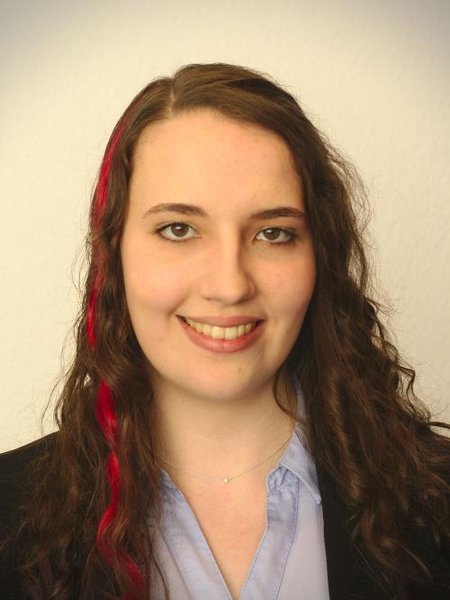
- What’s your name? Where are you from?
Hi, I am Carolin Kimmig, but I mostly go by my nickname Lina. I grew up in Tübingen and studied in Heidelberg.
- Which institution do you work for?
I work as a PhD student in Heidelberg at the Institute for Theoretical Astrophysics (ITA), which is part of the Heidelberg Center for Astronomie (ZAH). At the ITA there are several work groups that study a wide range of subjects, such as planet formation, star formation, or even galaxy formation
- What did you study?
I studied physics at the University of Heidelberg. During my studies, I was already very interested in astrophysics, which is why I took a lot of elective courses in this area.
- How did you arrive at exoplanet research?
Planets were always fascinating to me. After an interesting lecture about exoplanets I have looked for work groups in that subject area. Two of these groups I could try out as a Bachelor student by joining the weekly group meeting. The subjects discussed there fascinated me so much that I decided to write my Bachelor’s and Master’s thesis on this topic.
- What is your research topic?
I work on protoplanetary disks; that are disks made of gas and dust that form together with a star. Under certain conditions, planets can form within such disks when dust gathers and clumps together and grows and grows. But the conditions for planet formation are tied to many complex physical processes that have not been completely understood yet.
- What scientific questions do you seek to answer?
Specifically, I want to investigate the physical processes that can appear in protoplanetary disks. In the disks, Gas and dust are subject to outside conditions, for example from the star, possible already formed other planets, or magnetic fields. I want to do my part in understanding these processes.
- What methods do you use?
Since I work in theoretical astrophysics, I use a lot of computer simulations. I create a digital model of the disk I want to investigate and let the computer calculate what happens to the disk under which conditions. There are “open source” computer programs that were written by other scientists and that I can use, but sometimes I write my own programs to investigate certain aspects. To compare and verify the theoretical models observations are essential, which is why collaboration with observers is highly important.
- Why are you excited about specifically your research topic?
I am fascinated by how many different protoplanetary disks have already been observed. There are disks in all sizes, disks with rings, with spiral arms, with shadows or other non-symmetrical properties. Also, the multitude of physical processes in disks is enormous I find it exciting to find out which processes are dominant in which disks.
- How is your research topic integrated into the greater (scientific) context?
Humans are curious by nature. Big questions are for example: Where do we come from? How could our Earth have formed? Is it possible that other planets form under similar conditions? These kinds of questions can be answered within my research area, at least to a certain extent.
- Where do you see connections between your topic and other scientific fields?
Research into protoplanetary disks is closely connected to star formation, since they form together. That’s why the surrounding and manner of star formation integral for the form and composition of the disk.
Furthermore, physical processes in protoplanetary disks are often similar to processes in other disks, such as disks around black holes or galaxy disks. Often, parallels are drawn in this way.
- Do you regularly work together with other projects of the SPP? Which offers from the SPP-1992 (Conferences, training, networking, lecture series, etc.) did you make use of?
I participated in a summer school on exoplanets organized by the SPP-1992. There, I learned a lot and could try out different computer programs to simulate different aspects of exoplanets. Also, I was able to participate in a conference from the SPP-1992 where I could conduct many scientific discussions about my project as well as other projects.
- In what way/To What extent did the SPP-1992 support you and your research?
A research network like the SPP-1992 is a prime opportunity to get to know colleagues. Science is dependent on exchange and discussion, so I could get a lot of impulses for new research questions in my project. The SPP-1992 enabled me to exchange ideas with colleagues during the conference and summer school.
- Can you speculate what new insights into your research area we might have in ten years’ time?
The field of protoplanetary disks is changing rapidly. 10 years ago, there were no resolved observations of disks, you could only detect them indirectly. That is why I believe that 10 years from now we will have so many more and better observations that we can make hugely more precise statements about processes in protoplanetary disks. Furthermore, I think we will observe even more planets directly during their formation; until now there were only two or three disks with currently forming planets discovered.
